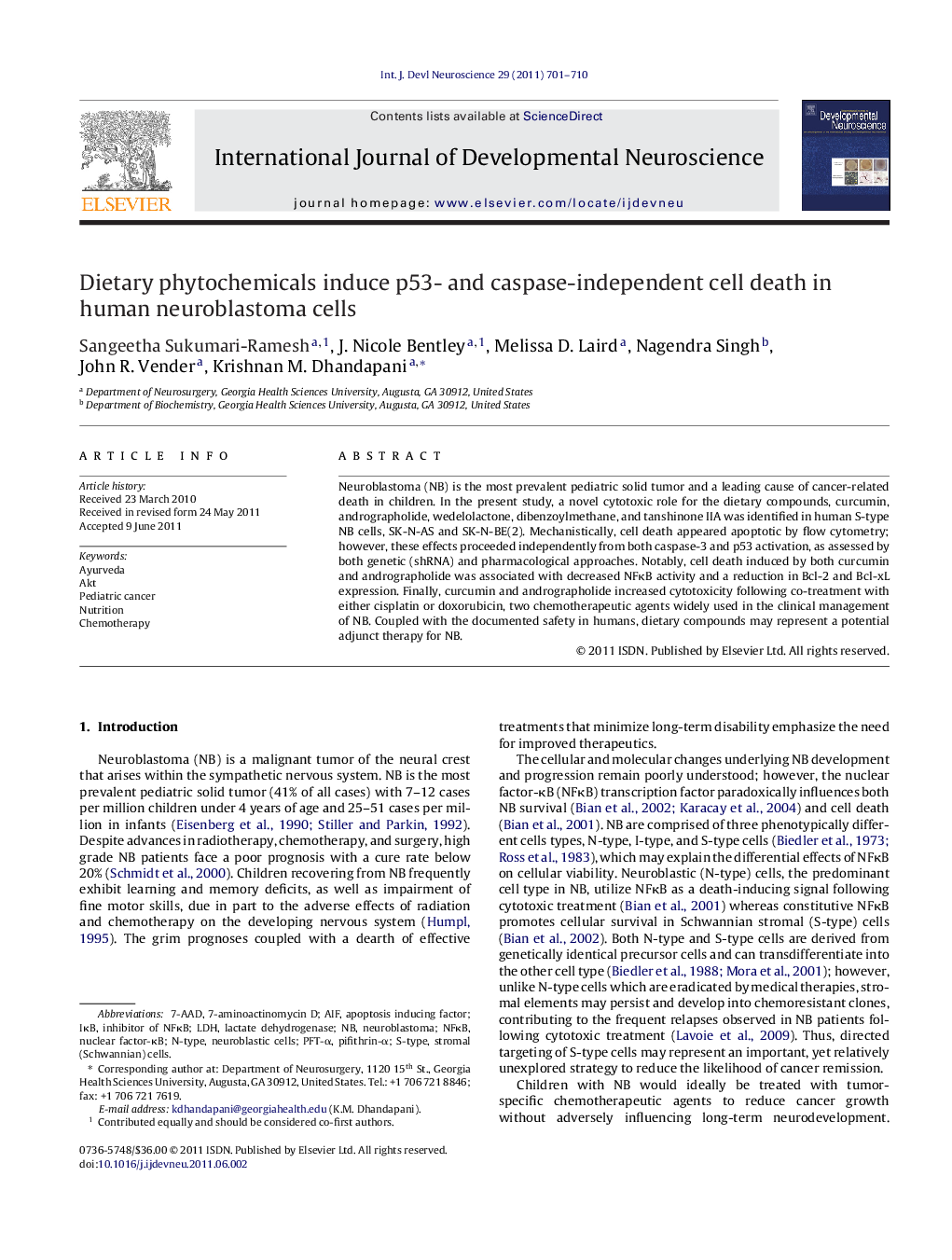| Article ID | Journal | Published Year | Pages | File Type |
|---|---|---|---|---|
| 2786452 | International Journal of Developmental Neuroscience | 2011 | 10 Pages |
Neuroblastoma (NB) is the most prevalent pediatric solid tumor and a leading cause of cancer-related death in children. In the present study, a novel cytotoxic role for the dietary compounds, curcumin, andrographolide, wedelolactone, dibenzoylmethane, and tanshinone IIA was identified in human S-type NB cells, SK-N-AS and SK-N-BE(2). Mechanistically, cell death appeared apoptotic by flow cytometry; however, these effects proceeded independently from both caspase-3 and p53 activation, as assessed by both genetic (shRNA) and pharmacological approaches. Notably, cell death induced by both curcumin and andrographolide was associated with decreased NFκB activity and a reduction in Bcl-2 and Bcl-xL expression. Finally, curcumin and andrographolide increased cytotoxicity following co-treatment with either cisplatin or doxorubicin, two chemotherapeutic agents widely used in the clinical management of NB. Coupled with the documented safety in humans, dietary compounds may represent a potential adjunct therapy for NB.
• A novel effect of dietary compounds on neuroblastoma viability is presented. • A p53- and caspase-3 independent mechanism of cell death is demonstrated. • Cell death is associated with reduced activation of NFκB transcription factor. • Dietary compounds potentiate the cytotoxicity of chemotherapeutic drugs.
